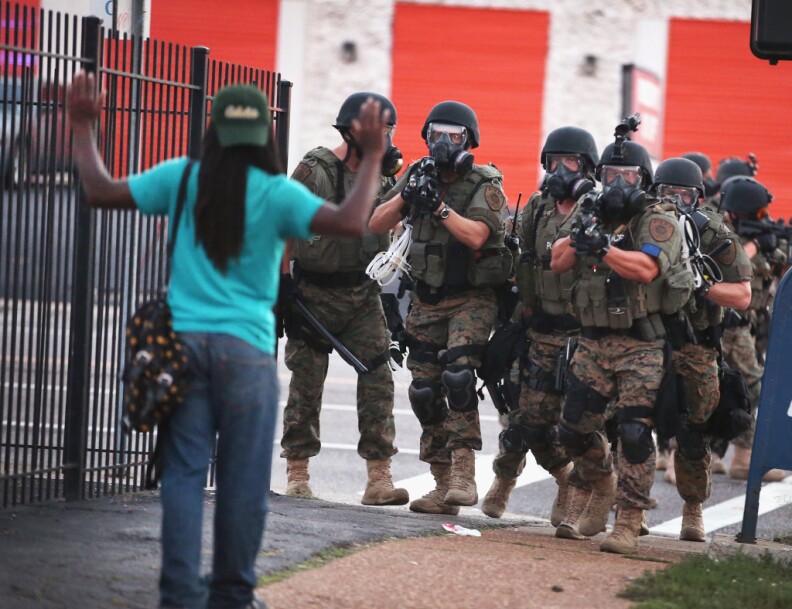Demonstrators spent their fifth day protesting the fatal shooting of Michael Brown in Ferguson, Missouri.
The 18 year old African American was shot by a police officer Saturday afternoon while walking with a friend.
The Ferguson police department has not released the name of the officer involved, although many in the neighborhood say they know who the cop was.
That anonymity has frustrated locals who are taking their anger to the streets.
David Harris, professor of law at the University of Pittsburgh, joined Take Two to talk about the policy by law enforcement to keep the names of officers involved in shootings private.
In addition, David Klinger explains the training that officers receive to prevent incidents like this. He's an associate professor of criminology at the University of Missouri - St Louis, and author of, "Into the Kill Zone: A Cop's Eye View of Deadly Force."



